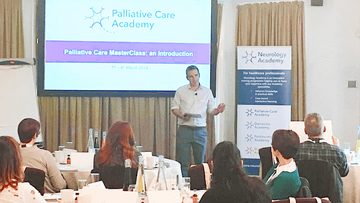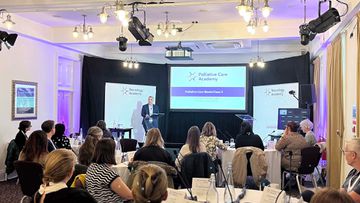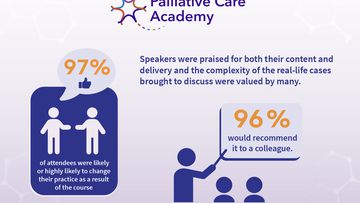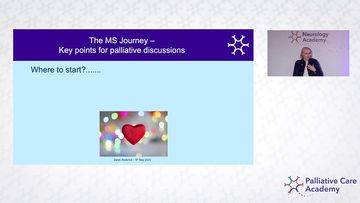The Palliative Care MasterClass’s new hybrid learning model expands its educational offering
News
The changes in education and the time pressures felt amongst healthcare practitioners as a result of COVID-19 have led to unexpected benefits within Palliative Care Academy.
The Palliative Care MasterClass is a broad course seeking to upskill palliative care practitioners in neurology, and neurological practitioners in palliative care, and until now, getting the balance of content right across all of the delegates has been challenging. Our unexpected foray into virtual learning this year has provided an exciting solution.
Dr Ed Richfield
Consultant in elderly medicine, North Bristol NHS Trust
Meanwhile, palliative care specialists have needed to revisit areas they are already well-schooled in before moving on to more complex neurological end of life scenarios. Yet, the shared experience from these two groups when pouring over case studies and offering insights in the MasterClassroom, is invaluable.
Enter the benefits of virtual learning. The MasterClass will become a hybrid course, with aspects of learning done independently via a digital platform, and other elements carried out in a group environment, whether in person or via online platforms, as appropriate to the individual and the social restrictions at the time.
A series of sessions across two modules will be made available ahead of the course date, module one addressing background palliative care and module two, the basics of neurology.
Ed explains why this approach will make such a difference to people, both in terms of who will find the course relevant, and the freedom they will have to learn in their own time.
Dr Ed Richfield
Each session will have a series of questions that an individual should be able to answer after attending, so all delegates can gauge whether the content is right for them based on the ease with which they can respond to these.
These independent modules will be followed with a study day module looking at practice and digging deeper into the material through discussion and case-based learning. This will be carried out in real-time and will facilitate open discussions and learning across the two specialisms.
Other benefits of this new model of learning include the protection of speaker time. We know that the time pressures on our clinicians are worse than ever, and we can help protect that time. By cutting down on travel and attendance time through remote delivery of sessions where preferred, or even pre-recording it in their own time, we are able to prioritise our speakers’ needs without compromising delegate’s experiences.
The new Palliative MasterClass will be available in the new year to the next cohort of delegates who sign up for the new format modular MasterClass. Please register your interest to attend here:

Related articles
For every person, at any stage
Palliative Care Academy challenges the idea of palliative care as a late-stage service. Whilst recognising the practical nuances and bespoke approaches needed in palliative care for people with dementia, Parkinson's, MS and motor neurone disease respectively, the Academy promotes a holistic and positive approach to palliative care at any stage of any condition.



